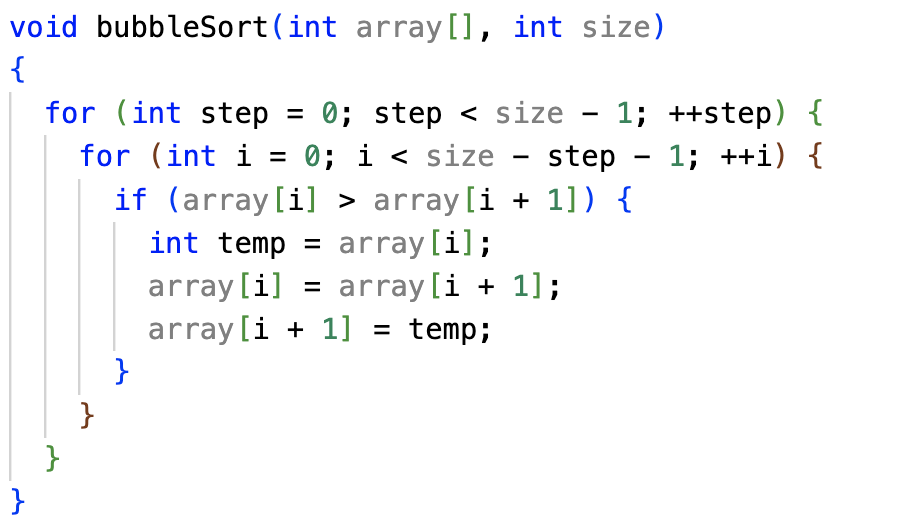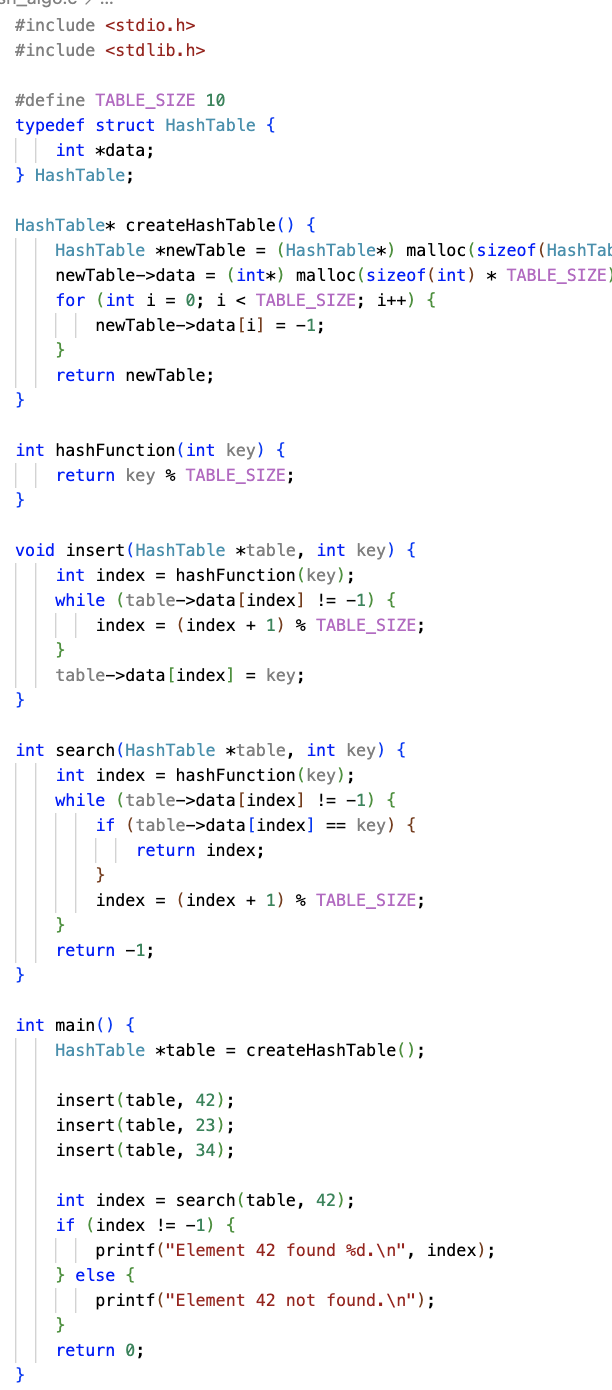

For Companies
For AI Labs
For Developers
Use Cases
Customer Stories
Get added peace of mind with Revelo’s risk-free trial. If you’re not satisfied with your hire within the first 14 days: You pay nothing, and we’ll find you a new candidate at no additional cost.










Agustina R.
Experience
8 years
AVAILABILITY
Full-time

Jorge R.
Experience
8 years
AVAILABILITY
Full-time
Rigorously vetted for technical and soft skills. Expertly hand-picked for your needs
Work synchronously with developers in the same or overlapping US time zones
Get shortlists within 3 days and hire in as fast as 2 weeks
Go further and reduce the overhead of sourcing, hiring, and talent management
C Standard/GNU C/ISO C Library (libc) | Bionic (libhybris) | dietlibc | glibc (EGLIBC) | klibc | Windows CRT | musl | Newlib | uClibc | POSIX
ANSI C | C99 | C11 | C17 | Embedded C | MISRA C | Apache Portable Runtime (APR) | Common Pipeline Library (CPL) | C Algorithms | TBOX | PBL | EFL | libU | libU | libnih
Facebook API | Instagram API | YouTube API | Spotify API | Apple Music API | Google API | Jira REST API | GitHub API | SoundCloud API
Amazon Web Services (AWS) | Google Cloud Platform (GCP) | Linux | Docker | Heroku | Firebase | Digital Ocean | Oracle | Kubernetes | Dapr | Azure | AWS Lambda | Redux
MongoDB | PostgreSQL | MySQL | Redis | SQLite | MariaDB | Microsoft SQL Server
The C programming language is foundational to modern computing and is especially important when software efficiency and speed are paramount. C developers write lean, high-performance code for systems software, embedded systems, and resource-constrained applications like gaming engines. Their expertise is critical for businesses where response time is as valuable as functionality, such as financial trading platforms or high-speed data processing services.
The reasons for hiring C developers extend beyond their coding skills. These developers bring an understanding of how software interacts with hardware, enabling companies to push the boundaries of technological innovation. As businesses strive to optimize operations or develop cutting-edge products, C programmers can drive growth by creating software that leverages every ounce of available system resources.
However, the challenge lies in finding proficient C developers. This language demands a deep understanding of computer memory management and architecture, which narrows the talent pool. Companies must invest in robust technical vetting processes to hire developers who not only have just the right skills but also have the ability to innovate and problem-solve at the lowest levels of the software stack.
C development is crucial for creating performance-critical applications. Its efficient manipulation of system resources makes it indispensable for developing operating systems and embedded systems, which require high degrees of process control and hardware interaction. The C programming language excels in managing complex data structures and memory allocation, features pivotal for designing sophisticated system-level software.
C developers are responsible for building the robust foundations of operating systems that are essential across multiple computing platforms. In the realm of embedded systems, C's capacity to operate at the hardware interface level allows for the streamlined execution of firmware and resource-constrained applications.
Microsoft and similar technology leaders use C to develop scalable, secure, high-performing solutions capable of processing extensive data with minimal latency. C development demands high technical proficiency and is crucial in advancing computational technologies, giving enterprises a competitive edge in developing cutting-edge software infrastructure.
C development is a cornerstone in programming, known for its power to create cross-platform software that runs efficiently on various operating systems, including Linux, Windows, and macOS. Businesses that carry out high-performance computing tasks prize C for its ability to quickly handle complex algorithms. In game development, C's speed translates to faster graphics rendering and real-time performance — crucial for modern, high-fidelity games.
The language’s versatility extends to app development, where its ability to operate closer to the system hardware can lead to more efficient and responsive applications. This efficiency is particularly beneficial in environments with limited resources, or the utmost speed is necessary. Despite not being inherently object-oriented, developers can still use C in an object-oriented manner to build modular and scalable software systems.
C's influence and efficacy stretch across diverse areas of tech, enabling companies to leverage its capabilities for creating fast and reliable software. This high-level performance is especially critical in systems where response time is key, such as in embedded systems or systems running complex scientific calculations. As businesses continue to demand software that can run seamlessly across different platforms and require robust back-end systems, C development remains an indispensable skill in the developer's toolkit, providing a competitive edge in a tech-driven marketplace.
C offers substantial benefits in various areas of software development. C is a robust tool in a developer's arsenal, from crafting intricate algorithms to developing UNIX-based applications. Its proximity to machine language ensures fast performance. With powerful debugging capabilities and compatibility with machine learning operations, C is an indispensable language that helps software excel in performance and reliability.
Some specific advantages include:

A C developer specializes in writing, optimizing, and maintaining software developed in the C programming language. These software engineers focus on developing efficient and scalable code that can perform under the demands of high-throughput and resource-intensive applications. Key responsibilities include:

Top candidates for a C developer position should bring technical expertise, meticulous analytical abilities, and the soft skills necessary to collaborate effectively within a team. From a technical standpoint, proficiency in other programming languages such as Python, PHP, Java, and JavaScript is often necessary.
Experience with server-side platforms like Node.js enhances candidates' ability to handle back-end operations. A strong understanding of database management systems demonstrated through hands-on experience with MySQL and SQL, is critical for developers who will interact with complex data structures or manage data-intensive applications.
Additionally, knowledge of front-end technologies is advantageous, especially for roles that demand full-stack development capabilities. Familiarity with languages like Swift for iOS app development or Rust for systems programming can set a candidate apart. Candidates should also typically be comfortable using integrated development environments (IDEs), with Visual Studio being a common choice for C development.
From a soft skills perspective, candidates must exhibit excellent problem-solving skills, with a knack for dissecting complex problems and crafting efficient solutions. Strong communication skills are essential for articulating technical information to non-technical stakeholders. Collaboration is vital, as developers will frequently work with cross-functional teams.
When it comes to education credentials, a bachelor’s degree in computer science or a related field is typically the baseline requirement. Certifications can be a plus but are not always mandatory. More important is a demonstrated track record of relevant experience and a portfolio of projects that showcases a candidate’s skill set.

There is a wealth of libraries and languages that build upon C's robust foundation, enhancing its functionality and adapting its capabilities to modern computing needs. Notable among these are GLib, which offers fundamental programmatic underpinnings
Build your remote software engineering team in any tech stack. Our talent pool of senior software developers are pre-screened across 100+ skills.
Looking for work? Apply here
Yes, if for any reason you find the developer you hire isn't a good fit within the first 14 days - you pay nothing or we can find you a replacement at no additional cost.
Hiring a full-time developer through Revelo is a simple 3-step process. First, you tell us your hiring needs. Second, we match you to the best developers within 3 days. Third, you interview the candidates you like and hire the one you like most.